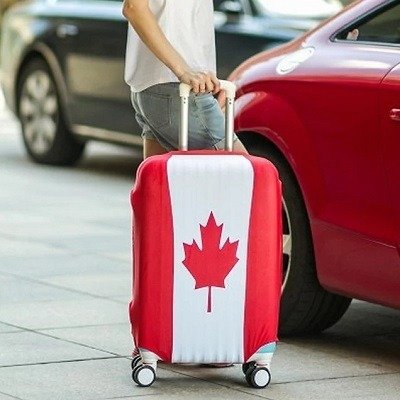
Although over a quarter of a million people immigrate to Canada each year, various immigration requirements must be complied with. Canada’s Immigration Act is extremely comprehensive and leaves no stone unturned.
There are four standards of immigration status in Canada: permanent resident, temporary resident, study permit, and refugee.
Permanent Resident Status In Canada:
Of all the immigration statuses in Canada, permanent residents receive the most rights and privileges to maintain their status. Canadian permanent residents are subject to certain legal obligations, including the requirement to carry proper identification or documentation whenever they are outside of their dwellings.
All Canadian permanent residents may have free access to universal healthcare services provided by Canada’s national healthcare system. These benefits do not extend to family members of a permanent resident unless they are specifically listed on the primary applicant’s immigration file.
Permanent residents may also apply to be Canadian citizens after residing in Canada for three years or more, depending on their age at application. They are subject to the legal obligation to pay taxes provided by federal and provincial legislation. Canadians with at least five years of permanent resident status can also apply to sponsor family members to get permanent resident status in Canada.
Temporary Resident Status In Canada:
One of the other immigration statuses in Canada is temporary resident status, which applies to individuals who are not Canadian nationals or permanent residents. This type of immigration status allows visitors to Canada to remain within the country for a specified period under strict conditions. Visitors who do not comply with the requirements of their status may be referred to restrictions or exclusions, depending on how long they need to remain in Canada.
Typically, temporary residents are temporarily exempt from paying taxes, provided they meet certain criteria. However, although they may work while in Canada, they must declare all taxable income earned by the Canada Revenue Agency. Temporary residents are prohibited from voting or standing in federal, provincial, or municipal elections.
Study Permit In Canada:
A study permit of other immigration status in Canada is paperwork that permits foreign students to study at an accredited institute of learning within Canada. The study permit is initially issued for the period of the foreign student’s program, and when it expires, if they choose to continue their studies in Canada, they must re-apply for another permit.
Keep in mind that a study permit is not a work permit unless specific conditions allow students to combine both activities with a single permit. Foreign students must also pay all applicable fees and tuition to be permitted to study within Canada.
Refugee Status In Canada:
The last type of immigration status in Canada is that of a refugee, which becomes available when a person applies to the federal government after escaping from a country where they face persecution because of their race, religion, political opinion, nationality, and belonging to a particular social group.
A refugee claimant is initially issued a six-month conditional removal order from the Board of Immigration and Refugees of Canada to allow them to apply for permanent residence status. If they are deemed to be a valid refugee by the federal government, they will receive their permanent residency status.
Individuals who are refused refugee status but still fear persecution may be permitted to remain in Canada under a temporary resident permit if they do not meet the requirements for entering as a refugee claimant. Note that individuals with pending applications must also abide by conditions given to them by the Immigration and Refugee Board of Canada until their application is adjudicated.
Who Cannot Immigrate To Canada?
- Anyone convicted of a criminal offense, including even minor offenses like theft or possession of marijuana.
- Any person involved in smuggling someone into the country (including refugees) can be denied entry to Canada if determined they pose a risk to the public.
- Anyone without valid travel documentation is also barred from entering Canada by law. Immigration violations are taken seriously by Canadian authorities and can lead to detention and removal from Canada.
Contact Lawyer Approach Today:
Lawyer Approach is your best option for your complete range of immigration law services across Canada. – Whether you are looking to enter or exit Canada, contact us now. We have a team of dedicated and professional immigration lawyers in Brampton who will offer you the best advice on any situation. So if you are looking to enter or exit Canada, book a free consultation with our immigration lawyers in Brampton now.
If you need legal guidance and help regarding immigration status in Canada, contact us now. Learn more about the different immigration statuses in Canada, such as permanent residence and temporary resident status. Contact an immigration lawyer in Brampton today. Call us today at +1 (437) 291-8267 or write us an email at [info@lawyerapproach.com] to book a consultation with our immigration lawyers in Brampton now.

